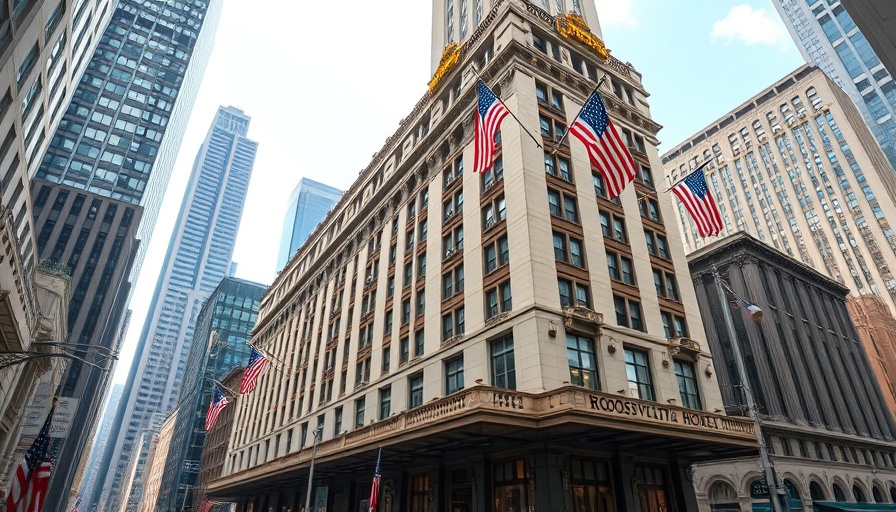
The Roosevelt Hotel's Transformative Role in the Migrant Crisis
As the Roosevelt Hotel prepares to close its doors for the final time on June 20, a significant chapter in New York City's ongoing migrant crisis approaches its conclusion. Once dubbed 'the new Ellis Island,' the hotel became a critical shelter for thousands during a period of unprecedented refugee arrivals. At its peak, the Roosevelt housed approximately 2,900 migrants, showcasing the city's role as a temporary haven for those seeking a fresh start.
Impacts on Employees and Local Businesses
With nearly 93 of the Roosevelt's 103 employees slated for layoffs, the personal impact is profound. These workers have played a pivotal role in managing the hotel's operations amid the chaos of the migrant influx. Yet, despite the impending layoffs, some local businesses on the ground floor, like Osukaa sushi restaurant, continue to thrive with existing leases, providing a semblance of normalcy in the shifting landscape.
Future of the Roosevelt Hotel Site: A Potential New Dawn
The hotel, owned by the Pakistan government for over a decade, is positioned for a redevelopment that could include a new supertall tower. As bids for the property approach the $1 billion mark, the area may soon be transformed from a refuge to a profitable real estate venture. Even as the future looms, questions remain about the fate of the remaining 1,800 migrants who have not yet secured housing elsewhere.
Current Perspectives and Community Sentiments
The community's sentiment reflects a mix of loss and hope as key stakeholders navigate the changing circumstances. For the affected employees, the closure represents job loss and an uncertain future. Meanwhile, businesses in the area exhibit resilience amid the impending shifts, revealing a complex narrative of survival, adaptation, and anticipation.
What Lies Ahead for the Migrants
With many migrants given only temporary shelter, the city must find sustainable solutions to their housing challenges. Attention towards equitable housing policies will be critical to ensure that as the site evolves, the humanitarian considerations of those who once relied on the Roosevelt's shelter are not forgotten.
Ultimately, the Roosevelt Hotel's story is more than just about a building's closure; it's about the lives intertwined within its walls and the enduring spirit of a city that constantly adapts in the face of change. As everyone looks to the future, the legacy of the Roosevelt in the migrant crisis cannot be overlooked, and the conversations it sparks will shape New York City for years to come.
 Add Row
Add Row  Add Element
Add Element 



Write A Comment